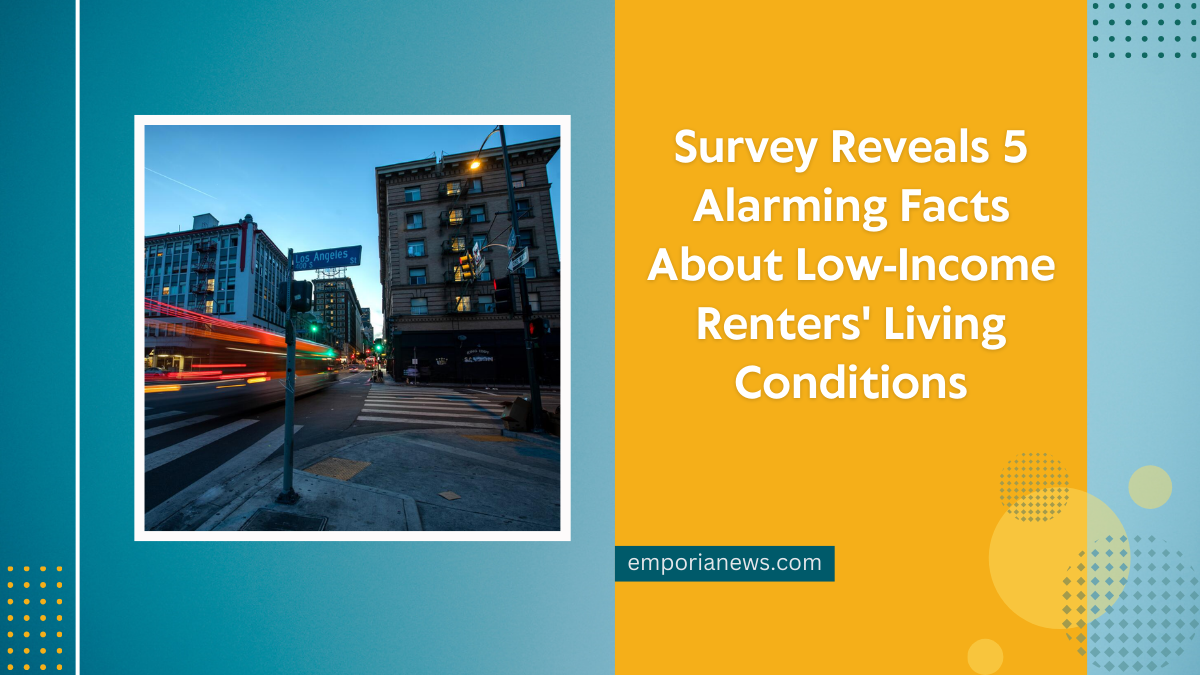Many low-income renters in Kansas endure substandard living conditions, including health hazards, due to fear of landlord retaliation. A University of Kansas survey highlights the challenges these renters face, shedding light on the systemic issues within the housing sector.
Fear of Retaliation Prevents Maintenance Requests
The survey indicates that a significant number of low-income renters avoid submitting maintenance requests. Their apprehension stems from potential eviction or other retaliatory actions by landlords, leaving issues like mold, broken appliances, and pest infestations unaddressed.
Power Imbalance Between Renters and Landlords
Renters report a pronounced power imbalance, with some experiencing physical assault and harassment from landlords. This dynamic discourages tenants from voicing concerns, perpetuating their substandard living conditions.
Lack of Regular Property Inspections
The study reveals that many rental properties lack regular inspections for code violations. This oversight allows landlords to neglect necessary maintenance, exacerbating health hazards for tenants.
Inadequate Legal Protections for Renters
While state laws prohibit landlord retaliation, the absence of enforcement mechanisms leaves renters vulnerable. This gap in protection contributes to tenants’ reluctance to report issues, fearing eviction or other consequences.
Economic Vulnerability Among Low-Income Renters
The survey shows that over half of the renters fearing eviction earn less than $35,000 annually. This economic vulnerability limits their housing options, often forcing them to choose between affordability and safety.
| Issue | Impact on Renters | Landlord Actions | Legal Protections | Recommended Solutions |
|---|---|---|---|---|
| Fear of Retaliation | Tenants avoid reporting issues due to fear of eviction. | Retaliatory evictions or harassment. | Prohibited by law but lacks enforcement. | Implement enforcement mechanisms. |
| Power Imbalance | Tenants experience harassment, deterring complaints. | Physical assault and intimidation. | Inadequate protections for tenants. | Strengthen tenant rights and support. |
| Lack of Property Inspections | Health hazards persist due to unaddressed maintenance issues. | Neglect of property upkeep. | Minimal oversight on property conditions. | Regular mandatory inspections. |
| Economic Vulnerability | Limited housing options force tenants into unsafe living conditions. | Exploitation of tenants’ financial status. | Insufficient affordable housing policies. | Increase affordable housing availability. |
| Inadequate Legal Protections | Tenants remain in poor conditions fearing legal repercussions from landlords. | Use of intimidation tactics. | Weak enforcement of anti-retaliation laws. | Establish local ordinances with penalties. |
Addressing these challenges requires comprehensive policy reforms, including enforcement mechanisms to protect tenants from retaliation and regular property inspections to ensure safe living conditions.
Additionally, increasing the availability of affordable housing can alleviate economic pressures on low-income renters.
FAQs
What should renters do if they fear retaliation from landlords?
Renters should document all communications and issues in writing. Consulting local tenant advocacy groups can provide guidance and support.
Are there legal protections against landlord retaliation?
Yes, while state laws prohibit retaliation, enforcement mechanisms may be lacking. Local ordinances in some cities offer additional protections.
How can the power imbalance between landlords and tenants be addressed?
Implementing tenant rights education and establishing mediation services can help balance the landlord-tenant relationship.
What role do property inspections play in ensuring safe living conditions?
Regular inspections can identify and address health hazards, ensuring landlords maintain properties adequately.
How can affordable housing availability be increased?
Investing in affordable housing projects and offering incentives to landlords who provide affordable units can expand housing options for low-income renters.




